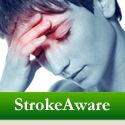What is myasthenia gravis?
Myasthenia gravis is a disease that causes muscle weakness in voluntary muscles you can control – unlike involuntary muscles you can’t control, like your heart. It can affect any muscles, but it involves your eyes, face, throat, neck, arms, and legs most commonly. It’s caused by a communication problem between your muscles and nerves.
What are the symptoms of myasthenia gravis?
- Changes in speech, such as your voice sounding very soft or nasal
- Changes in facial expressions
- Difficulty eating, swallowing, and speaking
- Double vision (diplopia)
- Drooping of one or both eyelids (ptosis)
- Frequent choking while eating or drinking
- Weakness in your neck, arm, hand, and leg muscles
Muscle weakness gets worse as you use the muscle and gets better with rest. Although symptoms come and go at first, they get worse over time — usually reaching their worst within a few years. In some instances, myasthenia gravis can affect breathing, which requires immediate attention.
How do you test for myasthenia gravis?
Neurological exam
We do a thorough physical exam and gather a complete health history. We check your muscle tone and strength, eye movements, sense of touch, coordination, and balance.
Edrophonium test
This test uses a shot of medicine (edrophonium chloride) that can immediately, but temporarily, relieve muscle weakness in people with myasthenia gravis.
Blood test
This test checks for antibodies that disrupt communication between nerves and muscles.
Electromyography (EMG)
This muscle-function test measures the electrical activity between your brain and muscles. Your doctor inserts a tiny wire electrode through your skin and into a muscle to test for electrical impulses. The muscles of those with myasthenia gravis and other neuromuscular disorders don’t respond normally to electrical stimulation.
Imaging
Your doctor may order computerized tomography (CT) or magnetic resonance imaging (MRI) to see if you have a tumor or other abnormality in your thymus gland, which can cause myasthenia gravis symptoms.
Lung function tests
These tests measure how much air your lungs can hold and how quickly air moves in and out of them. They can tell your doctor if your breathing is affected.
What are the treatments for myasthenia gravis?
Cholinesterase Inhibitors
These medications can help improve communication between your nerves and muscles, which may improve muscle strength.
Corticosteroids and immunosuppressants
These medications stop your body from producing abnormal antibodies that affect muscle strength..
Intravenous therapies
These therapies either add or remove antibodies from your body through a vein in your arm. Plasmapheresis filters your blood through a machine, similar to dialysis, to remove abnormal antibodies from your blood before putting it back in. Intravenous immunoglobulin (IVIg) adds antibodies to your blood to make your immune system function normally.
Surgery
Removing your thymus gland (thymectomy) can improve symptoms and even cure some people. A thymectomy can relieve symptoms in those with or without a thymus tumor. We use the least invasive approach – including robotic-assisted surgery, which uses small incisions – to help you recover more quickly.
Why Choose Us?
Neuromuscular expertise. Our diverse faculty provides comprehensive and compassionate care to patients with a broad range of neuromuscular diseases, as well as both electrodiagnostic and neuromuscular pathology services. The neuromuscular team works out of the Kessenich Family ALS Clinics, the adult and pediatric Muscular Dystrophy Association (MDA) Clinics and the University of Miami Electromyography Laboratory.
A comprehensive team. We offer a team of specialists – including eye specialists, neurologists, surgeons, and other experts – to ensure you get complete care. You get individual attention and treatment that offers you the best possible results.
Advanced surgical expertise. As an academic medical center, we offer the latest, proven approaches backed by the leading-edge research of the University of Miami Miller School of Medicine. Our surgeons are known internationally for outstanding surgical care. Doctors worldwide come to UHealth to learn advanced, minimally invasive and robotic surgeries.
Clinical and laboratory research. The physicians and scientists within the department also conduct cutting-edge clinical and basic science laboratory research in a variety of program areas including cerebrovascular disease; ALS and other neuromuscular diseases; epilepsy; genetic and mitochondrial diseases of the nervous system; movement disorders and degenerative diseases; neuro-pharmacology; and neurophysiology.
Support for you and your family. A challenging medical condition requires patience and support from your health care team – we offer both. We connect you to the services and support you need, with kindness and compassion.
StrokeAware: Get Informed About Strokes

Stroke is the third leading cause of death in the U.S. and the leading cause of serious, long-term, adult disability. Each year, over 700,000 people have a stroke; 75% of these are first attacks. Knowing the warning signs and acting quickly are our best defenses against Stroke.
Questions? We're here to help.
Our appointment specialists are ready to help you find what you need. Contact us today.